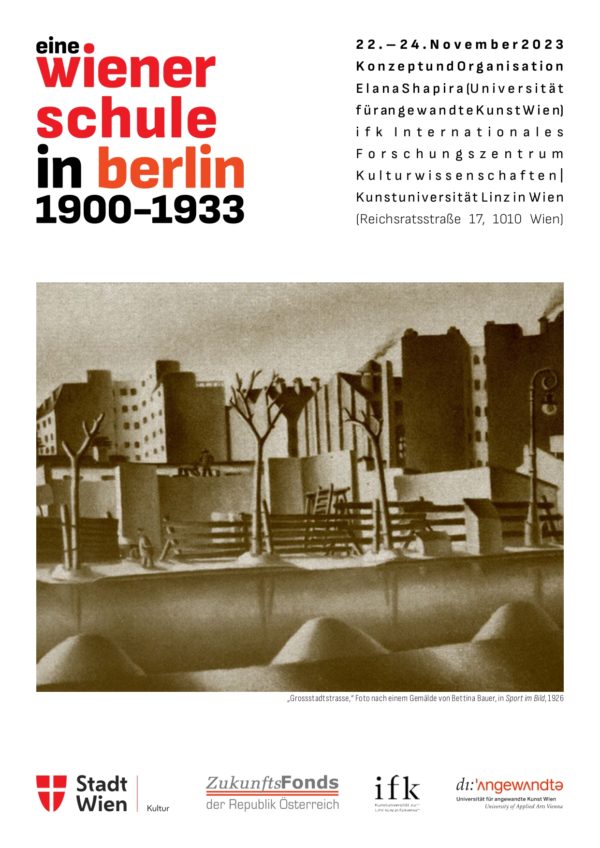A Viennese School in Berlin 1900-1933 (Symposium, 22-24 novembre 2023)
The international symposium “A Viennese School in Berlin” focuses on prom- inent Viennese professionals in the arts and media and their interrelated net- works of gallerists, editors, authors, artists and patrons in Berlin in the early twentieth century. The metropolis Berlin attracted many authors and artists, first from far and near regions of the Austro-Hungarian empire and then from the empire’s successor states in Central and East Europe after the First World War. From 1900 to 1933 these migrants and short-term visitors played a crit- ical role in shaping the cultures of modernity in the German capital. The sym- posium will investigate to what extent a Viennese School developed in Berlin as the result of a series of cultural transfers between the two cities over this period of three decades. The protagonists shared the creative experience of transforming their self-image as “Outsiders” into artistic license. They wrote German while possibly still thinking in different languages and often endorsed an imagined Habsburg idyll of cultural pluralism. Their meeting places included Berlin’s café houses, galleries, theatres, cinemas, cabarets, salons and media platforms.
The symposium will mostly focus on Viennese figures, but also include several other Austro-Hungarians who worked or lived in Vienna before moving to Berlin. Many were already established as part of the avant-garde scene and many were Jews or had Jewish origins, including Vicki Baum, Elisabeth Bergner, Friedl Dicker-Brandeis, Friedrich Kiesler, Richard Oswald, Hertha Pauli, Max Reinhardt and Eugenie Schwarzwald. The international symposium aims to address both the Viennese and Jewish identifications of these protagonists and their networks and to explore the Berlin influence on their careers and work.
Our discussions will also take into consideration how various other (self-) identifications (religious, ethnic, gender and sexuality) shaped their cultural approaches. We seek to determine the relevance of these figures and networks to the cultures of modernity in Berlin and Vienna, especially in light of the rise in German nationalism during this period. What was their contribution to securing pluralism in these cities, and what remains of their vision today?



